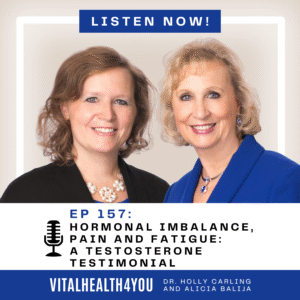Symptoms are not a random set of annoyances, but an alarm system that signals something is wrong. Understanding what the body is trying to tell us, appropriately interpreting a combination of symptoms, and taking action to change it, especially in the early stages, can make a difference in your level of suffering.
Every body is different. Each comes with a different set of potential genetic manifestations, lifestyle, diet, emotional factors, and stress that contribute to how the body expresses what is wrong.
The body will generally tell us in more than one way what is wrong. For instance, osteoporosis, arthritis, bone spurs, kidney or gall stones and cataracts all have one thing in common: calcium metabolism issues. Yet the traditional medical treatments for all those symptoms are conversely different.
Understanding the language of symptoms and deciphering their meaning is paramount. Treating only one symptom, isolated from the rest, will at best give you minimal help, however, the underlying problem may still be there. It is essential that you take a wholistic (whole body) approach, acting as a sleuth to put together a whole picture of what may be amiss, what your body is trying to get your attention about. The body doesn’t always give us straightforward clues.
When I listen to my patients, I am not listening only to the words they are saying, but their body language, the emotional aspects of it, how everything they are saying fits together. It’s like a picture puzzle. Each symptom is a piece of that puzzle. As they continue to express their symptoms, a picture begins to emerge of what went wrong. Then the picture, not just the puzzle piece gets addressed. I want the person to be well for good, not just temporarily. Treating just the symptoms is either temporary or not enough. It is likely to return. I want them to enjoy a life free of these symptoms.
For instance, if a patient comes in with a chronic morning cough, I need to explore why. Are they refluxing at night? Are they allergic to something in or around their bed (such as laundry soap or mold)? Do they have a post-nasal drip, asthma, bronchitis, a respiratory infection, do they smoke, have sleep apnea, heart failure, COPD, or are they taking one of the many medications that have a side effect of morning cough? To just treat the cough as something minor, can result in missing a very important condition.
The body wants to be in a state of balance, able to thwart a stress at the first provocation. It wants to be on its toes, so to speak, with resources to counter any threat or imbalance that may come its way. Symptoms are the red flags waved when it has run out of resources, or things are getting out of control. Find a practitioner that will dig deeply to find WHY your body can no longer address a problem, and then enjoy a level of health only experienced when you pay attention to what your body is telling you.
©2023 Holly A. Carling, O.M.D., L.Ac., Ph.D.







